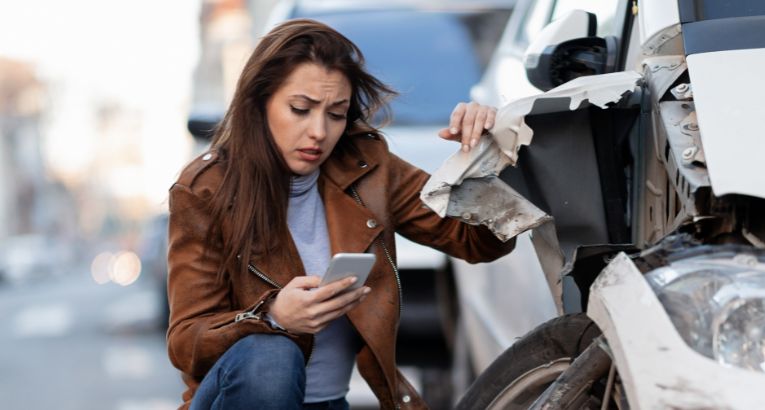
Table Of Contents
The Legal Challenges of Rideshare Accidents: Uber, Lyft, and Passenger Safety
Ridesharing is an increasingly popular method of transportation. Different ridesharing companies, such as Uber and Lyft, have enabled people to get from Point A to Point B at minimal cost and with minimal wait times. All that’s required is a smartphone and an acceptable method of payment. Secure those two prerequisites, and a pedestrian can become a passenger rather quickly.
While ridesharing has revolutionized transportation in the United States and around the world, it is not without its fair share of flaws. For instance, rideshare companies report on their own safety track records. In recent years, these reports have revealed that serious accidents involving rideshare vehicles have resulted in hundreds of passenger and driver deaths. Among the chief causes for these accidents are speeding and intoxicated drivers.
Determining Liability in a Rideshare Accident
Suffering an injury in a rideshare accident means determining fault for who caused the accident to occur. Unfortunately, determining fault, or liability as it is also called, is more complex in a rideshare scenario than it is in a standard car accident.
A straightforward car accident involves an insurance company accepting fault for the negligence of its insured driver. When it comes to rideshare liability, several additional factors are considered. These additional factors stem from the way Lyft and Uber designate their drivers.
Lyft and Uber drivers are not employees of these companies. Instead, they are independent contractors. As independent contractors, these drivers are not covered by any insurance policies provided by the rideshare companies. For an injured person, this means that it becomes complicated to pursue a lawsuit against one of these rideshare companies.
If you’re involved in a rideshare accident, a car accident attorney near you can help navigate the complexities of liability.
When are rideshare companies held responsible?
However, just because rideshare drivers are not employees of the rideshare company does not mean that Uber, Lyft or any other company cannot be held liable for a person’s injuries. Vicarious liability may arise when considering the doctrine of respondeat superior. Under this legal theory, an employer is held responsible for the wrongful actions of their employees committed within the scope of their employment.
In a rideshare scenario, if a driver were to cause an accident during a rideshare trip, the rideshare company may become liable for injuries or property damage resulting from the driver’s wrongful actions.
Additionally, courts have held that rideshare drivers have acted as agents of the rideshare companies. As the theory goes, a rideshare driver, in carrying out the company’s business goals, acts as an agent of the company. If an agency relationship exists, then any harm caused by their agent can be held against the rideshare company itself.
Bear in mind that these are complex legal arguments that take experience and knowledge to offer successfully. Working with an experienced rideshare accident attorney provides an individual the best opportunity to hold a rideshare company responsible for having contributed to their injuries.
What Is the Insurance Situation Involved in a Rideshare Accident?
The circumstances of the particular accident matter a great deal when it comes to insurance. However, a rideshare company, the at-fault driver, and any other at-fault party may all be liable for having caused an accident.
This is before we even begin to discuss the insurance circumstances of any driver or the rideshare company itself. A driver’s insurance company will typically take the lead role in accepting fault for an accident. The rideshare company’s insurance will then come in as a secondary insurer in some cases.
A rideshare driver must have active car insurance in order to drive for Lyft or Uber. An insured driver must then disclose to their insurance that they are driving as an independent contractor for a rideshare company. Many insurers make additional layers of coverage available to these individuals.
Injured People Should Not Give Up When Advocating for Their Rights
It is not easy fighting against insurance companies, rideshare companies, and negligent drivers after a car accident. The feeling of being injured and then having to push back against all these forces acting against you can be intimidating. The last thing a person may want is to have to go through this trouble just to receive fair compensation for their injuries and other losses.
How To Proceed After Being Injured in a Rideshare Accident
Protecting yourself after a rideshare accident is advisable on many levels. First, it is best for your physical health. Taking these steps can help you prevent an injury or a minor issue from becoming much more significant.
Consider seeking medical care even if you do not believe the injuries are severe. Receiving a basic check-up after an accident will ensure that an injury does not arise, which can impact your health. Many injuries common to car accidents are not immediately apparent and can worsen over time if not treated initially.
Next, make phone calls to two different groups. Law enforcement should be notified of the accident even if the other drivers involved state otherwise. If nothing else, the police can write a report and provide the opportunity to exchange insurance information. The next phone call to make is to the rideshare company. Alert their corporate office to what occurred and any information you are aware of.
Finally, take photos of the accident, your injuries, and the scene. Speak to potential witnesses about what they saw and write down their contact information. The opportunity to snap photos and talk to witnesses will likely not come up again, so take advantage while you have them available to you.
Rideshare accidents often leave victims unsure of where to turn, especially when faced with multiple layers of insurance coverage and unclear liability between driver and company. Victims may face serious injuries, medical bills, and lost income. An experienced rideshare accident attorney can help identify who is truly responsible, negotiate with insurance providers, and help advocate for compensation. With the proper legal guidance, injured passengers and drivers can protect their rights and hold negligent parties accountable.









